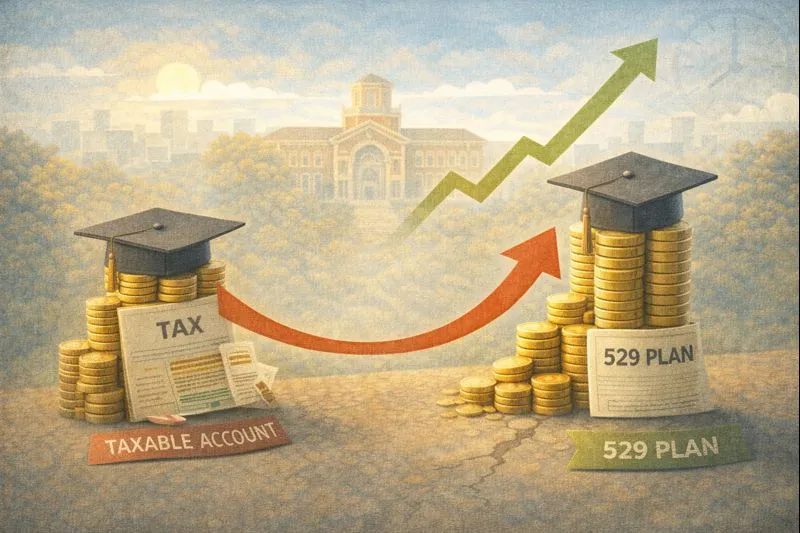Is Private School Tuition Tax Deductible?

For many families, private school tuition is a big expense that can feel overwhelming. If you’ve ever wondered, Is private school tuition tax deductible?, you’re not the only one. While the quick answer is usually no, there are some exceptions and smart strategies that might help ease the cost. Let’s break it down in simple terms and explore your options together.
Key Takeaways
- Private school tuition for K-12 education is generally not tax deductible on your federal tax return.
- There are specific situations, such as special needs education or certain state tax credits, where families might receive tax benefits.
- Planning ahead and exploring alternatives like 529 plans can help families manage education expenses more effectively.
What Does the IRS Say About Private School Tuition?
The IRS considers private school tuition for elementary and high school as a personal expense, so it doesn’t qualify for tax deductions like charitable donations or mortgage interest. It doesn’t matter if the school is secular or religious - the rules are the same. However, there are some exceptions to this general rule that may offer families partial tax relief.
Exceptions to the Rule
1. Special Needs Education
If your child attends a private school specifically designed to address their special needs, such as a school offering therapies for learning disabilities, you may be able to deduct tuition costs as a medical expense. To qualify:
- The school must primarily provide medical care, therapy, or education tailored to your child’s condition.
- You must itemize deductions on your tax return.
2. State Tax Credits and Deductions
In some states, you might find tax credits or deductions for private school tuition. These programs can vary a lot, so it’s worth looking into what your state offers. Here are some examples:
- Arizona: Provides a tax credit for donations to school tuition organizations that help fund scholarships.
- Indiana: Offers a deduction for private school tuition up to a specific amount per child.
- Florida: Features a tax credit program for contributions to scholarship funding organizations that support low-income students attending private schools.
- Minnesota: Allows families to claim deductions for educational expenses, including private school tuition, under certain conditions.
Pro tip: Checking your state’s rules could uncover helpful opportunities to offset costs.
State-level benefits change frequently. Eligibility depends on current state law and program funding.
Analyze tax-loss harvesting scenarios and portfolio-level tax impact.
3. Scholarships and Financial Aid
Although private school tuition isn’t deductible, scholarships and financial aid can make a big difference. Many schools offer need-based or merit-based scholarships, so it’s always a good idea to ask what’s available. These programs can go a long way toward reducing your overall expenses.
Can 529 Plans Be Used for Private School?
Yes! Recent changes in tax law allow families to use 529 savings plans to pay for private school tuition for K-12 education. Here’s how it works:
- What is a 529 Plan? A tax-advantaged savings account designed to help families save for education expenses. (Read our full article by clicking here)
- What’s Covered? You can use up to $10,000 per year from a 529 plan to pay for private elementary or high school tuition.
- The Benefit: While contributions to a 529 plan aren’t deductible on federal taxes, the earnings grow tax-free, and withdrawals for qualified education expenses are also tax-free.
For a hypothetical example, if you’ve saved $30,000 in a 529 plan, you can withdraw $10,000 annually to offset private school tuition costs.
Alternatives to Private School Tuition Deductions
While you can’t deduct private school tuition at the federal level, there are other ways to ease the cost:
- Educational Tax Credits: Programs like the American Opportunity Tax Credit (AOTC) and Lifetime Learning Credit (LLC) are designed for college but could help free up your budget for K-12 expenses.
- Dependent Care FSAs: If your private school offers after-school care, you might be able to get some of those costs reimbursed through a dependent care flexible spending account.
- Employer Assistance: Check if your employer provides tuition reimbursement or other education-related benefits. You might be surprised by what’s available!
How optimized is your portfolio?
PortfolioPilot is used by over 40,000 individuals in the US & Canada to analyze their portfolios of over $30 billion1. Discover your portfolio score now:






